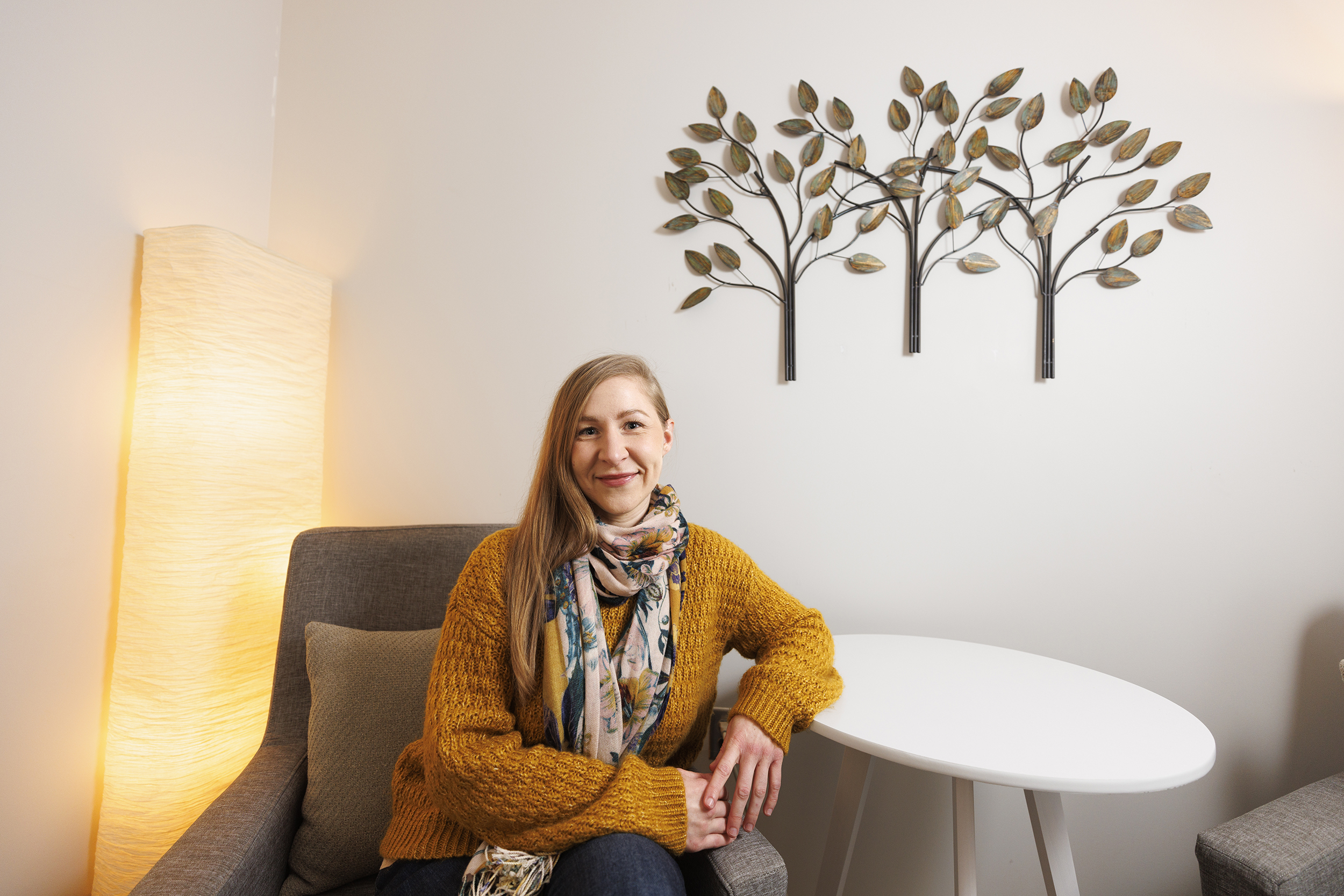
A University of Nebraska–Lincoln researcher is using a National Science Foundation grant to study how two institutions of higher education are implementing federal guidelines that address sexual violence on campus.
Husker researcher Kathryn Holland is using a $500,000 grant from the NSF Faculty Early Career Development Program to explore how a particular facet of these guidelines — mandatory reporting policies — are carried out at two large campuses in the United States. She’s exploring the dynamic interplay between how institutions interpret federal guidance related to mandatory reporting; how they educate faculty, staff and students about these policies; and how individuals’ personal experiences and attitudes affect their behavior around reporting.
The ultimate goal, Holland said, is to generate data that support development of trauma-informed policies that help survivors gain access to resources that bolster long-term healing. The study is the first-ever multi-level exploration of mandatory reporting rules.
“I feel like we’ve really only started to scratch the surface of the kind of empirical evidence that we need to be able to understand these policies, how they’re being implemented and their outcomes,” said Holland, assistant professor of psychology and women’s and gender studies. “A big piece of what I aim to do with my work around sexual violence is to think about how we can improve policies and develop empirically informed policies. That’s an area that’s really been lacking.”
Mandatory reporting policies stem from Title IX of the Education Amendments of 1972, which protects people participating in federally funded education programs or activities from discrimination based on sex, including sex-based harassment and sexual violence. In guidance documents — which assist institutions in complying with Title IX — the U.S. Department of Education Office for Civil Rights instructs institutions to designate mandatory reporters: people who, upon learning about sexual misconduct, are required to report the information to designated university officials.
Responding to this guidance, most institutions designate nearly all employees as mandatory reporters. On its face, this approach seems logical: the more mandatory reporters there are, the more likely it is for sexual assault reports to surface, which would benefit survivors.
But that’s a faulty assumption, Holland said. The literature shows that when survivors’ autonomy and control are reduced — as they are in mandatory reporting systems, when names and experiences are sometimes shared with university officials against survivors’ wishes — it results in increased symptoms of post-traumatic stress.
Holland’s experiences with survivors echo this pattern. Prior to launching her research career, she was an advocate for sexual assault survivors. In that role, Holland routinely saw survivors who shied away from reporting assaults through official channels. When she was an instructor in graduate school, students routinely disclosed sexual violence to her in papers and class discussions. This first-hand experience with the murkiness of mandatory reporting policies motivated Holland to pursue this research trajectory and seek an empirically driven, survivor-oriented approach.
“In my experience and in my research, what I’ve seen is that the scope of who is required to report has been too broad,” she said. “There is a lot more that we need to understand about what scope is the most beneficial for everybody involved, and the kind of training and resources that need to be in place to make a mandatory reporting policy function in the way we hope it would.”
For the CAREER project, Holland is using a qualitative approach to analyze how Title IX guidance is translated into real-world policies and outcomes on two campuses. To collect institutional-level data, she’ll analyze text from university policies and websites. For individual-level data, she’ll interview about 60 faculty and staff and 60 students, including mandatory reporters and survivors, at each institution. Some of her questions will focus on alternative interpretations of mandatory reporting policies that may provide survivors more autonomy.
Holland will then integrate the institutional- and individual-level data, illuminating how federal directives morph as they’re interpreted first by institutional officials, then by mandatory reporters and survivors as they attempt to comply. She aims for the research to serve as a model for blending two levels of data in order to evaluate the effectiveness of institutional sexual assault policies.
For the educational component of the project, Holland will develop and teach a rigorous graduate seminar in the Department of Psychology focused on qualitative methods and analysis. Previously, students had to seek such training outside the department. Holland said the course will help to debunk some of the most persistent myths about qualitative research.
“Within the field of psychology, there is often this sort of idea that qualitative research is just really easy and not rigorous,” Holland said. “But there is a lot that goes into planning, executing and analyzing qualitative data. It is not easy. I’m excited to be offering an area of methodological training that our department hasn’t had previously.”
She also hopes to strengthen her track record of using qualitative research to impact institutional policies. She currently serves on the Action Collaborative on Preventing Sexual Harassment in Higher Education within the National Academies of Sciences, Engineering and Medicine, which focuses on developing evidence-based policies to prevent sexual harassment on campus and address sexual harassment when it occurs. She’s also been an expert witness for survivors in Title IX litigation. She hopes her newest findings have similar real-world impact.
“I would really love for this work to be useful for people like policymakers and advocates,” she said. “That’s a piece of the project I’m really excited about.”








